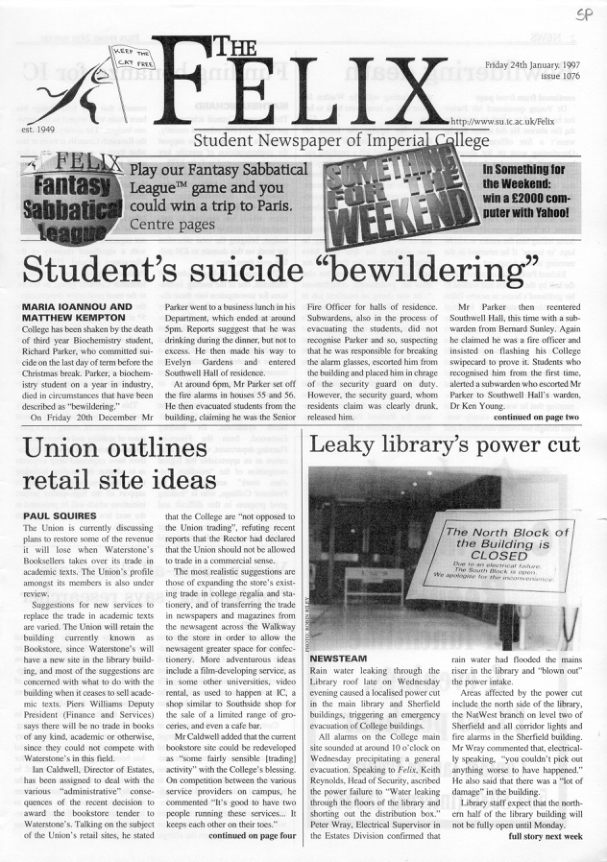Vaccine cure-all claims are "misleading" says researcher
A Sunday Times article published on 12th January this year under the headline "Vaccine Could Cure All Allergies At A Stroke" has been described as "misleading" by Dr Charlotte Hetzel, a co-worker in the project headed by Professor Jonathan Lamb.
Currently three million people in this country are thought to be allergic to house mites, tiny creatures found in most domestic furniture. The vaccine concerned aims to immunise people against allergic reactions to house dust mites. It works by redirecting the immune pathway undertaken by white cells on presentation with the protein secreted by house dust mites which triggers the allergic response in the first place.
This may potentially be achieved by introducing the white cells to an altered version of the protein early on in life. A strain of genetically engineered, non-pathogenic species of myobacteria can be used to deliver the vaccine into the body.
The results obtained so far in experimental models are promising. The project is still at the laboratory stage, and whilst its clinical potential has been recognised, no vaccine for clinical trial has yet been prepared. In view of this, the suggestion in the Sunday Times article that the three million people who are allergic to house dust mites will benefit immediately from this work may seem over optimistic.






